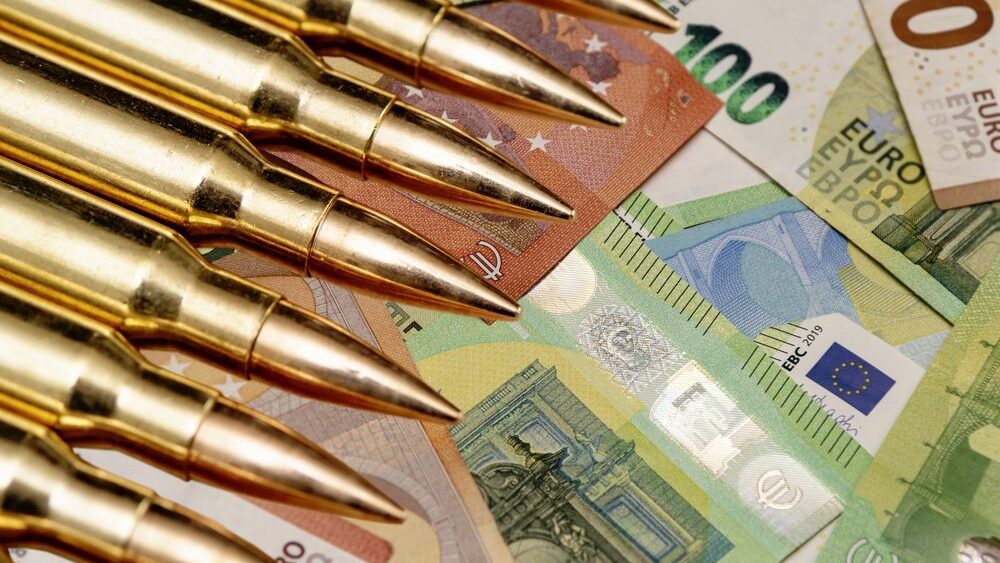
Internal Market Commissioner Thierry Breton said Tuesday that Brussels is preparing to propose a massive common defense fund of €100 billion.
The details are included in the new European Defense Investment Program (EDIP) that’s set to be presented on February 27th. The program is intended to boost joint arms procurement and ramp up domestic production to prepare for and deter any possible future conflict, primarily with Russia.
“I believe we have to have a huge defense fund to help to accelerate, even probably in the amount of €100 billion,” Breton said at an event organized in the European Parliament by the liberal Renew Group. “I’m convinced we will do this.”
As for why Europe needs this giant centralized push for common defense initiatives instead of investing in strong national militaries, Breton offered a spooky anecdote about President Trump.
The commissioner recalled a conversation in Davos between Trump and Commission President Ursula von der Leyen in 2020, in which the former U.S. president allegedly said he’d withdraw his country from NATO, however ludicrous and technically unfeasible the idea might sound.
According to Breton, Trump told von der Leyen that
if Europe is under attack we will never come to help you and to support you, and by the way NATO is dead, and we will leave, we will quit NATO.
The clear implication from Breton is that if European people don’t pay €100 million into a cash pot for weapons controlled by Brussels, Europe will be overrun by Russia because ‘Orange Man bad.’ To be frank, most European countries’ defense capabilities desperately need an upgrade, but that doesn’t mean further centralization toward an eventual EU army is the best course of action—which also explains why Breton has to resort to fearmongering and unverifiable anecdotes.
But strengthening the EU is not the only goal.
EU leaders are set to convene for an extraordinary summit in early February to discuss the proposed EU budget hike, including further contributions to the bloc’s common defense and security instruments—with a main focus on the immediate needs of Ukraine.
As the EU’s self-imposed deadline for delivering one million artillery rounds to Ukraine looms, Breton made another attempt to urge countries to contribute, even at the expense of their economic needs.
“I want to tell you here today that we will stick to our commitment,” the commissioner said, asking member states once more to cut back on weapon exports and pressure their arms industries to ramp up production for Ukraine.
If member states take this seriously, he said, it is “absolutely” to deliver the required amount of ammo by the March deadline, or April at the latest. Then, that momentum could put the EU’s arms production capacity on par with Russia’s in as little as 18 months, he added.
Previously, officials around Europe have been questioning the rationality of making such a big commitment in the first place, with German Defense Minister Boris Pistorius commenting in November that it was impossible to deliver that many rounds on time since two-thirds of the one million target is still missing.
While Pistorius is perhaps the one politician in Europe who takes military readiness the most seriously, Breton does not seem to listen to his warning about over-ambitious plans.
“I’m not happy when I see some defense ministers saying we will not be able to deliver, this is not the kind of information you give when there is a war on your Continent,” the commissioner said.
